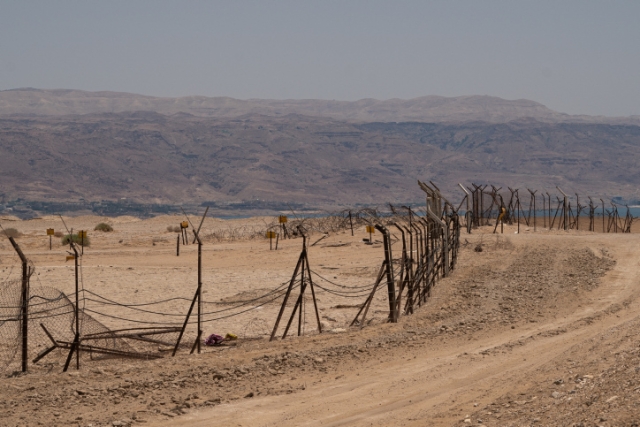The lengthy border that separates Israel and Jordan was, for many years, considered a peaceful and effective boundary. For most of this period, the most significant issue along this stretch was drug smuggling. However, in recent times, this border has seen a surge in breaches, becoming a significant route for smuggling not just narcotics but also weapons and tools of warfare. These illicit goods are often used for both criminal activities and terrorism within Israel and Palestinian Authority territories.
In light of a string of smuggling incidents involving both drugs and arms across the borders with Egypt and Jordan, the Israel Defense Forces (IDF) resolved to amplify their presence and bolster their technological security apparatus. This move aims to dissuade and deter potential smugglers.
The gravity of such smuggling operations cannot be taken lightly. A substantial portion of the smuggled weapons ends up in the hands of Israeli criminal factions, impacting both Arab and Jewish communities. Concurrently, a significant amount of these weapons reaches terrorist groups operating in Judea and Samaria. The primary recipients seem to be organizations within the northern Samaria Palestinian cities. These weapons subsequently become instrumental in terrorist acts and confrontations against IDF units in the region.
Israeli media: 7 suspects infiltrate 'Israel' through Jordanian border https://t.co/EHSYtvdOvt
— Joe Catron (@jncatron) July 31, 2023
Major General Yitzhak Barik (retired) has had an illustrious career in the IDF, serving in various top-tier positions, with his last role being the Soldier Acceptance Commissioner. He has been openly critical of the IDF's approach towards the Jordanian border's security. In a candid interview with the Israeli media outlet "Walla", he described the IDF's actions, or lack thereof, on the Jordanian border as "hallucinatory."
Barik elaborated, "Over the past two decades, we've seen a significant reduction in the army, with a notable cutback in the reserves. The IDF has been increasingly hesitant to deploy reserve battalions, both from a perspective of maintaining peace and as a cost-saving measure." Barik suggests that this downsizing meant that border security responsibilities have shifted to the mandatory regular army, which he believes is understaffed and ill-equipped for such an expansive task.
Jordan border tensions: 5 infiltrators captured, 'unusual' weapons smuggling foiled | World Israel News https://t.co/Zgm6bF8DQw
— Louise B Eisenhardt (@LouiseBEisenha2) August 4, 2023
Drawing from IDF and police data, Barik states that Arab Israelis and Palestinian communities collectively possess around 400,000 illegal firearms. The majority of these have been smuggled, while a significant number were pilfered from the IDF itself. "Furthermore," Barik adds, "radical Arab factions have amassed a significant stockpile of ammunition and explosives, much of which were stolen from military bases." He paints a grim picture, explaining, "Currently, these illicit weapons are employed by crime syndicates for almost daily acts of violence. But there's a looming threat that they could be turned against the Jewish community in a potential regional conflict, leading to rampant violence and chaos."


